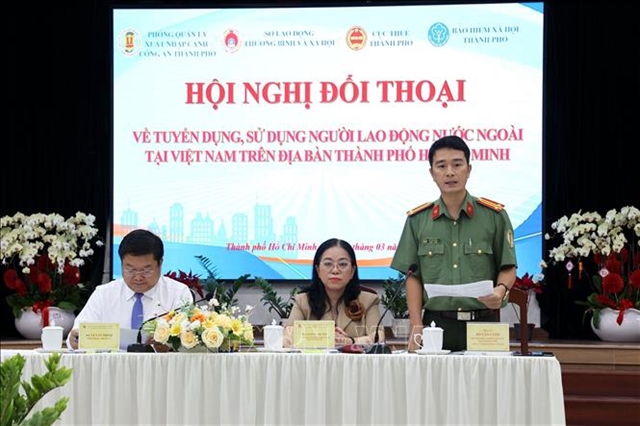 Society
Society

 |
| A foreigner at work in Việt Nam. — Photo nld.com.vn |
HÀ NỘI — The Ministry of Labour, Invalids and Social Affairs (MOLISA) has finalised a draft decision to pilot a streamlined administrative process linking work permits for foreign workers and criminal record checks.
The move aims to simplify procedures and improve the business environment.
Currently, the procedures for obtaining a work permit and a criminal record certificate are governed by separate laws, and also being handled by different entities.
Work permits are issued under the Labour Code and applied for by employers, while criminal record certificates are issued under the Judicial Records Law, with the individual needing to request one from the justice offices/departments.
This separation has made it difficult to link the two processes administratively.
To address this division, MOLISA has proposed a pilot programme that allows employers to simultaneously submit electronic applications for work permits and criminal record checks to the provincial Department of Labour, Invalids, and Social Affairs (DOLISA), where the foreign worker is expected to work.
DOLISA will then process the work permit application and forward the criminal record request to the National Centre for Judicial Records for verification.
The centre will assess the criminal record application and send the results to the individual’s registered email address and the national electronic data repository.
Meanwhile, DOLISA will review the work permit application. Once both processes are complete, DOLISA will issue the work permit and criminal record certificate electronically to the employer.
The entire process is expected to take 15 working days from the date of receiving a valid application.
The pilot programme will be implemented in three localities, Hà Nội, Thừa Thiên Huế and Bà Rịa-Vũng Tàu, representing the northern, central and southern regions of Việt Nam.
It will run for one year from the date the decision takes effect.
MOLISA stated that the initiative aims to improve Việt Nam’s business environment, ease the development of high-quality human resources and simplify administrative procedures for businesses hiring foreign workers. — VNS




